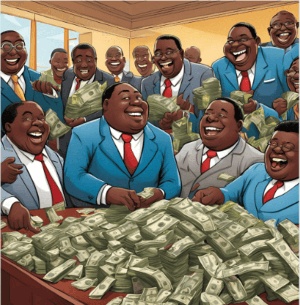Politics of Sunday, 18 February 2024
Source: CNR
Ministerial reshuffle: Akufo-Addo’s ego failed him – Vanderpuye
The Member of Parliament for Odododiodoo, Edwin Nii Lante Vanderpuye, has stated that the president’s ego prevented him from heeding stakeholders’ input regarding the recent Ministerial reshuffle.
President Akufo-Addo’s reshuffle on February 14, 2024, has triggered public discussions, with some, including the opposition National Democratic Congress (NDC), labeling it an “injury time remix,” deemed “insipid and uninspiring.”
During an interview on the Big Issue on Citi TV, Mr. Vanderpuye asserted that the president overlooked the valuable insights of stakeholders, including Civil Society Organisations and his constituents.
He outlined three goals he believes a reshuffle aimed to achieve: fostering healthy competition among appointees, addressing specific issues, and aligning the government with the country’s prevailing psychological dynamics.
Mr. Vanderpuye emphasised that, given these objectives, the president should have engaged his cabinet after a year or two to assess appointees’ performance and make informed decisions for effective governance.
While acknowledging the president’s transparency in publicly stating reasons for appointments, Mr. Vanderpuye criticised the president for neglecting a crucial evaluation process, attributing it to his reluctance to listen to diverse perspectives.
“The president after a year or two should have sat down to with his cabinet, every president I know has advisers outside his mainstream to see whether the scorecard of the people he had appointed was good, very good or possibly excellent. If they weren’t, then the president right from there could have taken certain measures and steps to see how he could reshuffle, let me say the pawns on the chessboard, in order to be able to win the game, he didn’t.”
“Persistent calls from civil society organisations, the clergies, some party faithful, the oppositions, in fact as for us if he didn’t listen to us, I wasn’t worried because I knew he wasn’t going to listen to us in any way. But when the pressure is coming from your own party, some of the council of elders, some of your party supporters, your members of parliament, Civil society organisations, these are the people who are doing day-to-day assessment of your men on the field. And sometimes when you sit at the top because your interaction is limited to people who you have chosen to serve, you don’t turn to hear the other side of the story.”











